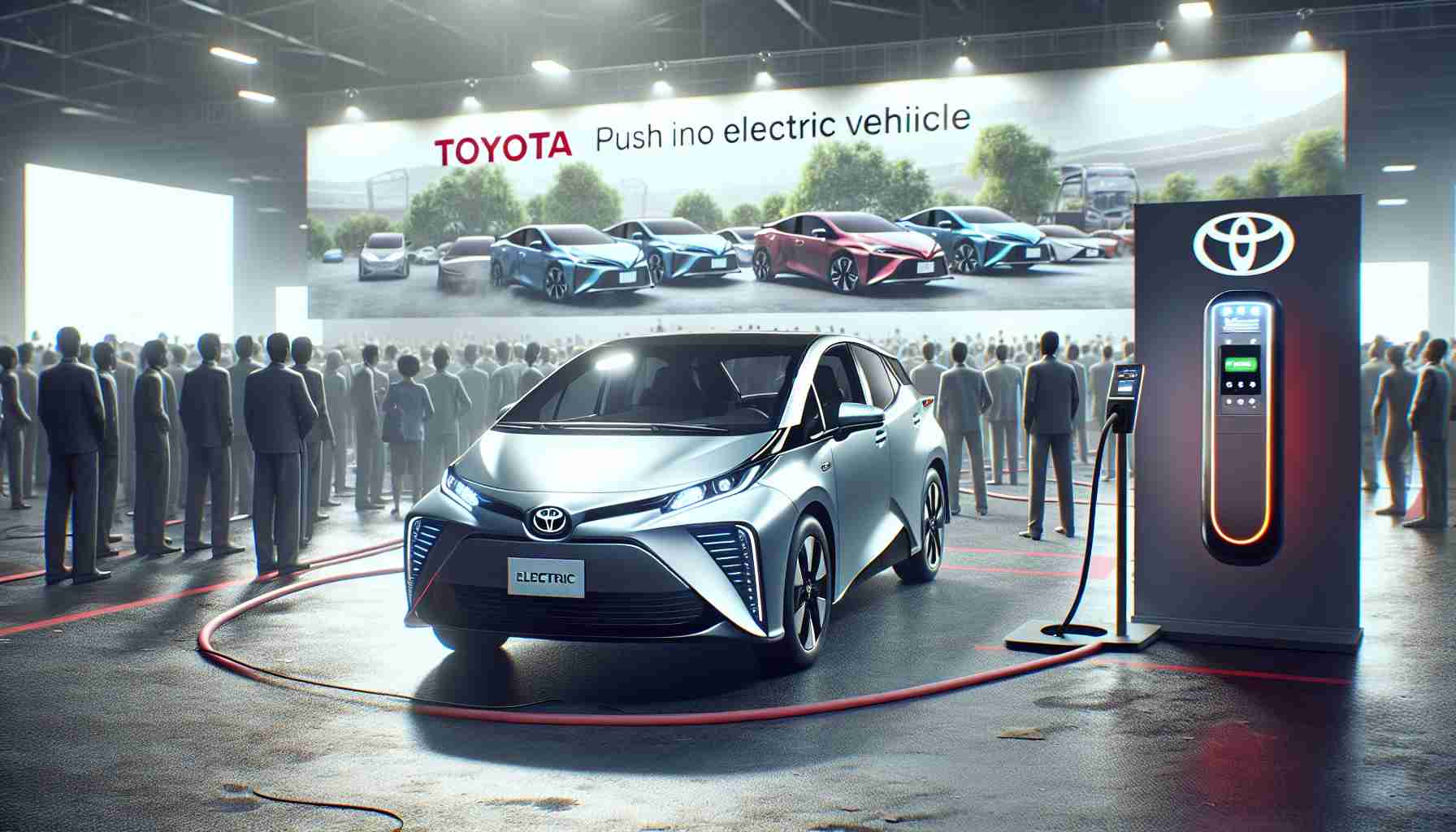- Toyota’s fiscal third-quarter revenue rose by 2.9% to ¥12.391 trillion ($80.95 billion), with net profit jumping 62% to ¥2.193 trillion ($14.21 billion).
- The company aims for a projected profit of ¥4.7 trillion ($31 billion) by fiscal 2025.
- A dedicated Lexus EV unit is set to launch in Shanghai by 2027, enhancing Toyota’s presence in China’s EV market.
- A $14 billion battery plant in North Carolina will generate 5,000 jobs, supporting hybrid and electric vehicle production.
- Toyota is focused on sustainability while addressing challenges such as trade restrictions and rising production costs.
- The company’s future success depends on maintaining consumer demand for electric vehicles.
Toyota is lighting up the automotive world with electrifying news! The company reported a stellar 2.9% increase in fiscal third-quarter revenue, totaling a whopping ¥12.391 trillion ($80.95 billion). Even more impressive, net profit soared by an astounding 62% year-over-year to ¥2.193 trillion ($14.21 billion), smashing all expectations and fueling investor excitement.
The excitement doesn’t stop there. Toyota is setting the stage for a bold future, predicting a profit of ¥4.7 trillion ($31 billion) in fiscal 2025. To solidify its foothold in China’s booming EV market, the automaker is unveiling plans for a dedicated Lexus EV unit in Shanghai, set to launch production in 2027. This facility will be a game-changer, marking it as the second foreign-owned auto plant in China after Tesla.
In addition, Toyota has announced a massive $14 billion battery plant in North Carolina, poised to create 5,000 jobs while supporting the production of its hybrid and electric fleet. The strategic move aims to counterbalance trade restrictions and rising production costs, ensuring the company’s vital role in a sustainable transportation future.
As Toyota races towards an electrifying horizon, the key question remains: will the consumer demand for EVs keep up with their ambitious pace? With innovative strategies in place and a commitment to sustainability, Toyota is prepared to navigate this dynamic landscape. Keep your eyes peeled as they drive into a greener future!
Toyota’s Electrifying Future: What You Need to Know!
Overview of Recent Developments at Toyota
Toyota has been making headlines recently with impressive financial results and ambitious plans for electrification. The company reported a 2.9% increase in fiscal third-quarter revenue, bringing in ¥12.391 trillion ($80.95 billion). Their net profit saw a remarkable year-over-year increase of 62%, totaling ¥2.193 trillion ($14.21 billion). With this success, Toyota is forecasting a profit of ¥4.7 trillion ($31 billion) for fiscal 2025 as they pivot toward a more adaptive business model that prioritizes electric vehicles (EVs).
New Initiatives to Compete in the EV Market
To enhance its presence in China’s expanding EV market, Toyota is launching a dedicated Lexus EV unit in Shanghai, with production expected to start in 2027. This move signifies Toyota’s intent to establish a stronger foothold in one of the largest automotive markets globally. Furthermore, the company is investing $14 billion in a battery manufacturing facility in North Carolina, projected to create around 5,000 jobs and support its hybrid and electric lineup.
Rich Results Insights
– Market Trends: The global demand for EVs is projected to continue growing, driven by stricter emissions regulations and consumer preference shifts towards sustainable transportation.
– Innovations in EV Technology: Innovations include improved battery technologies, partnerships for charging infrastructure, and advancements in autonomous driving features.
– Sustainability Efforts: Toyota has committed to sustainability across its manufacturing processes, focusing on reducing carbon emissions and enhancing the lifecycle impact of its vehicles.
Key Questions Answered
1. What are Toyota’s financial forecasts for the future?
– Toyota forecasts a profit of ¥4.7 trillion ($31 billion) for fiscal 2025, reflecting its commitment to expanding its EV offerings and capitalizing on global demand trends.
2. What specific initiatives is Toyota undertaking to enhance its EV production?
– The establishment of a dedicated Lexus EV unit in Shanghai and a $14 billion battery plant in North Carolina are key strategic initiatives aimed at boosting EV production and meeting anticipated consumer demand.
3. How is Toyota addressing sustainability in its automotive operations?
– Toyota is focusing on sustainable manufacturing practices, including investment in battery production and the development of cleaner technologies, to minimize its environmental footprint.
Related Insights
– Innovations in EVs: The company is actively researching and developing next-generation battery technologies to enhance electric vehicle performance.
– Security Aspects: In light of increasing cyber threats, Toyota is prioritizing the security of its vehicles’ onboard technology and consumer data.
– Market Analyses: Analysts predict that Toyota’s investments in EV infrastructure will position it competitively against traditional and emerging rivals in the automotive sector.
For the latest on Toyota’s business strategies and product innovations, visit their official site: Toyota Global.













